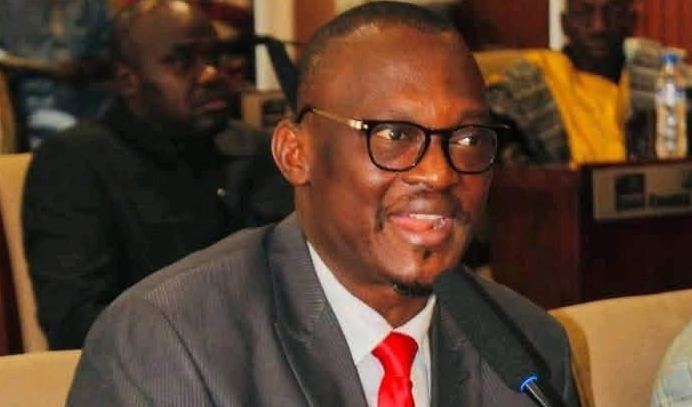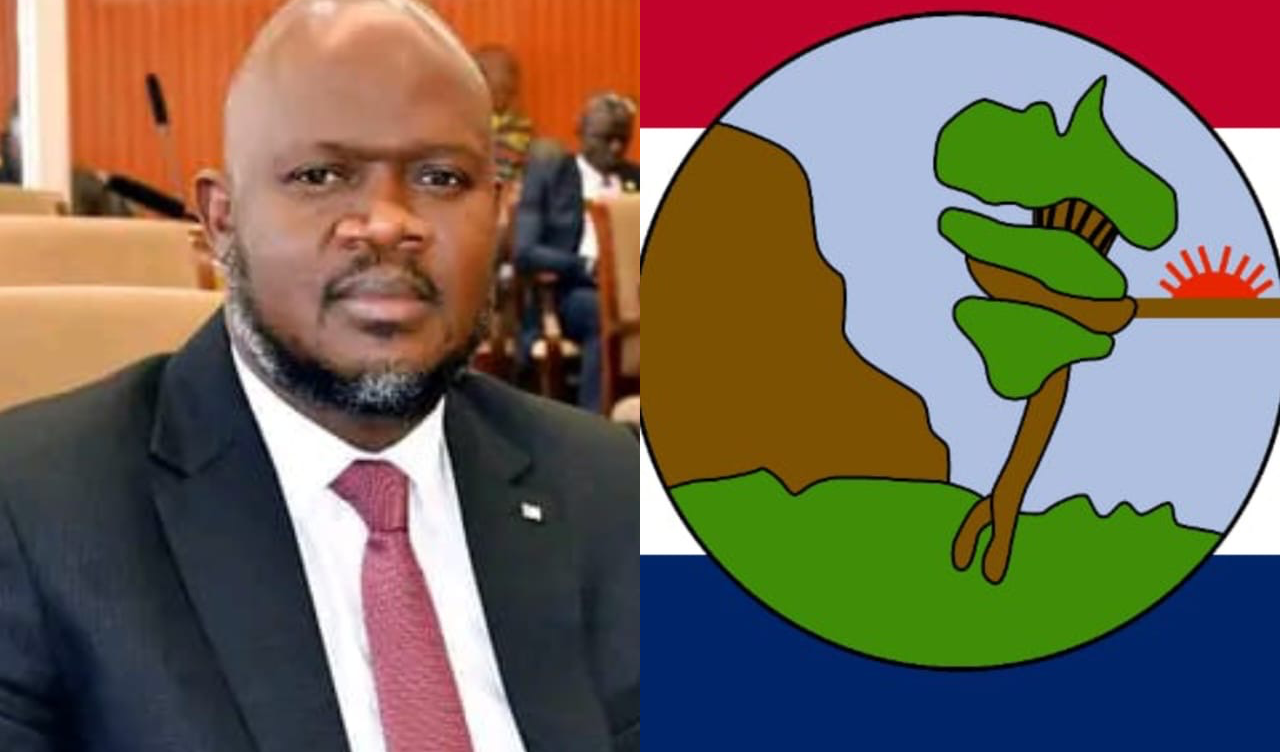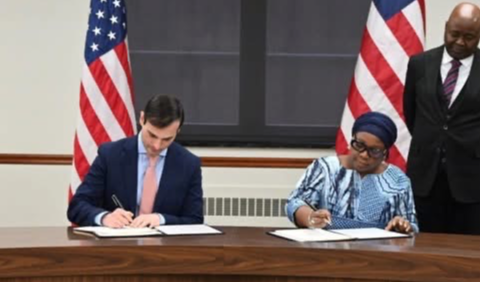Terms & Conditions for [InsideLiberia ]
Last Updated: June 24, 2025
Welcome to [InsideLiberia] ("we," "us," or "our"). These Terms & Conditions ("Terms") govern your access to and use of our website, including any content, functionality, and services offered on or through [Your News Website Name] (the "Website"), whether as a guest or a registered member.
Please read these Terms carefully before you start to use the Website. By using the Website or by clicking to accept or agree to the Terms when this option is made available to you, you accept and agree to be bound and abide by these Terms and our Privacy Policy, incorporated herein by reference. If you do not want to agree to these Terms or the Privacy Policy, you must not access or use the Website.
1. Acceptance of Terms
By accessing and using the Website, you acknowledge that you have read, understood, and agree to be bound by these Terms, as well as any additional terms and conditions that are referenced herein or that may apply to specific sections of the Website or to particular products and services that we offer.
2. Changes to the Terms
We may revise and update these Terms from time to time in our sole discretion. All changes are effective immediately when we post them and apply to all access to and use of the Website thereafter. Your continued use of the Website following the posting of revised Terms means that you accept and agree to the changes. You are expected to check this page frequently so you are aware of any changes, as they are binding on you.
3. Accessing the Website and Account Security
We reserve the right to withdraw or amend this Website, and any service or material we provide on the Website, in our sole discretion without notice. We will not be liable if for any reason all or any part of the Website is unavailable at any time or for any period. From time to time, we may restrict access to some parts of the Website, or the entire Website, to users, including registered members.
You are responsible for:
Making all arrangements necessary for you to have access to the Website.
Ensuring that all persons who access the Website through your internet connection are aware of these Terms and comply with them.
To access the Website or some of the resources it offers, you may be asked to provide certain registration details or other information. It is a condition of your use of the Website that all the information you provide on the Website is correct, current, and complete. You agree that all information you provide to register with this Website or otherwise, including but not limited to through the use of any interactive features on the Website, is governed by our Privacy Policy, and you consent to all actions we take with respect to your information consistent with our Privacy Policy.
If you choose or are provided with a user name, password, or any other piece of information as part of our security procedures, you must treat such information as confidential, and you must not disclose it to any other person or entity. You also acknowledge that your account is personal to you and agree not to provide any other person with access to this Website or portions of it using your user name, password, or other security information. You agree to notify us immediately of any unauthorized access to or use of your user name or password or any other breach of security. You also agree to ensure that you exit from your account at the end of each session. You should use particular caution when accessing your account from a public or shared computer so that others are not able to view or record your password or other personal information.
4. Membership Plans and Billing
a. Membership Types: We offer various membership plans that provide access to exclusive content, features, and benefits on our Website. Details of the available plans, including pricing, features, and terms, are provided on our Membership page.
b. Billing and Payments:
Subscription: By signing up for a membership plan, you agree to pay the applicable subscription fees as specified on our Website. All fees are non-refundable unless otherwise stated herein.
Automatic Renewal: Unless you cancel your membership in accordance with these Terms, your membership will automatically renew at the end of your billing cycle (e.g., monthly, annually) and you authorize us to charge your designated payment method for the renewal fees.
Payment Method: You must provide accurate and complete billing information, including a valid payment method. You authorize us to charge all fees incurred by you to such payment method.
Price Changes: We reserve the right to change our membership prices at any time. We will provide you with reasonable prior notice of any price changes.
If you do not agree to the new prices, you may cancel your membership before the changes take effect. |
c. Cancellation: You may cancel your membership at any time by following the instructions on your account settings page or by contacting our support team. Your membership will remain active until the end of your current billing cycle, and you will not be charged for subsequent billing cycles. No refunds will be issued for partial billing periods.
d. Free Trials: From time to time, we may offer free trials of certain membership plans. If you sign up for a free trial, you may be required to provide your payment information. If you do not cancel your free trial before the trial period ends, you will be automatically charged for the applicable membership plan.
5. Intellectual Property Rights
The Website and its entire contents, features, and functionality (including but not limited to all information, software, text, displays, images, video, and audio, and the design, selection, and arrangement thereof) are owned by [InsideLiberia], its licensors, or other providers of such material and are protected by United States and international copyright, trademark, patent, trade secret, and other intellectual property or proprietary rights laws.
These Terms permit you to use the Website for your personal, non-commercial use only. You must not reproduce, distribute, modify, create derivative works of, publicly display, publicly perform, republish, download, store, or transmit any of the material on our Website, except as follows:
Your computer may temporarily store copies of such materials in RAM incidental to your accessing and viewing those materials.
You may store files that are automatically cached by your Web browser for display enhancement purposes.
You may print or download one copy of a reasonable number of pages of the Website for your own personal, non-commercial use and not for further reproduction, publication, or distribution.
If we provide desktop, mobile, or other applications for download, you may download a single copy to your computer or mobile device solely for your own personal, non-commercial use, provided you agree to be bound by our end user license agreement for such applications.
You must not:
Modify copies of any materials from this site.
Use any illustrations, photographs, video or audio sequences, or any graphics separately from the accompanying text.
Delete or alter any copyright, trademark, or other proprietary rights notices from copies of materials from this site.
If you print, copy, modify, download, or otherwise use or provide any other person with access to any part of the Website in breach of the Terms, your right to use the Website will stop immediately and you must, at our option, return or destroy any copies of the materials you have made. No right, title, or interest in or to the Website or any content on the Website is transferred to you, and all rights not expressly granted are reserved by [InsideLiberia]. Any use of the Website not expressly permitted by these Terms is a breach of these Terms and may violate copyright, trademark, and other laws.
6. Prohibited Uses
You may use the Website only for lawful purposes and in accordance with these Terms. You agree not to use the Website:
In any way that violates any applicable federal, state, local, or international law or regulation (including, without limitation, any laws regarding the export of data or software to and from the US or other countries).
For the purpose of exploiting, harming, or attempting to exploit or harm minors in any way by exposing them to inappropriate content, asking for personally identifiable information, or otherwise.
To transmit, or procure the sending of, any advertising or promotional material without our prior written consent, including any "junk mail," "chain letter," "spam," or any other similar solicitation.
To impersonate or attempt to impersonate [InsideLiberia], a [InsideLiberia] employee, another user, or any other person or entity (including, without limitation, by using email addresses or screen names associated with any of the foregoing).
To engage in any other conduct that restricts or inhibits anyone's use or enjoyment of the Website, or which, as determined by us, may harm [InsideLiberia] or users of the Website, or expose them to liability.
Additionally, you agree not to:
Use the Website in any manner that could disable, overburden, damage, or impair the site or interfere with any other party's use of the Website, including their ability to engage in real time activities through the Website.
Use any robot, spider, or other automatic device, process, or means to access the Website for any purpose, including monitoring or copying any of the material on the Website.
Use any manual process to monitor or copy any of the material on the Website, or for any other unauthorized purpose without our prior written consent.
Use any device, software, or routine that interferes with the proper working of the Website.
Introduce any viruses, Trojan horses, worms, logic bombs, or other material that is malicious or technologically harmful.
Attempt to gain unauthorized access to, interfere with, damage, or disrupt any parts of the Website, the server on which the Website is stored, or any server, computer, or database connected to the Website.
Attack the Website via a denial-of-service attack or a distributed denial-of-service attack.
Otherwise attempt to interfere with the proper working of the Website.
7. User Contributions
The Website may contain message boards, chat rooms, personal web pages or profiles, forums, bulletin boards, and other interactive features (collectively, "Interactive Services") that allow users to post, submit, publish, display, or transmit to other users or other persons (hereinafter, "post") content or materials (collectively, "User Contributions") on or through the Website.
All User Contributions must comply with the Content Standards set out in these Terms.
Any User Contribution you post to the site will be considered non-confidential and non-proprietary. By providing any User Contribution on the Website, you grant us and our affiliates and service providers, and each of their and our respective licensees, successors, and assigns the right to use, reproduce, modify, perform, display, distribute, and otherwise disclose to third parties any such material for any purpose.
You represent and warrant that:
You own or control all rights in and to the User Contributions and have the right to grant the license granted above to us and our affiliates and service providers, and each of their and our respective licensees, successors, and assigns. All of your User Contributions do and will comply with these Terms. You understand and acknowledge that you are responsible for any User Contributions you submit or contribute, and you, not [InsideLiberia], have full responsibility for such content, including its legality, reliability, accuracy, and appropriateness. We are not responsible or liable to any third party for the content or accuracy of any User Contributions posted by you or any other user of the Website. 8. Content Standards These content standards apply to any and all User Contributions and use of Interactive Services. User Contributions must in their entirety comply with all applicable federal, state, local, and international laws and regulations. Without limiting the foregoing, User Contributions must not: Contain any material that is defamatory, obscene, indecent, abusive, offensive, harassing, violent, hateful, inflammatory, or otherwise objectionable. Promote sexually explicit or pornographic material, violence, or discrimination based on race, sex, religion, nationality, disability, sexual orientation, or age. Infringe any patent, trademark, trade secret, copyright, or other intellectual property or other rights of any other person. Violate the legal rights (including the rights of publicity and privacy) of others or contain any material that could give rise to any civil or criminal liability under applicable laws or regulations or that otherwise may be in conflict with these Terms and our Privacy Policy. Be likely to deceive any person. Promote any illegal activity, or advocate, promote, or assist any unlawful act. Cause annoyance, inconvenience, or needless anxiety or be likely to upset, embarrass, alarm, or annoy any other person. Impersonate any person, or misrepresent your identity or affiliation with any person or organization. Give the impression that they originate from or are endorsed by us or any other person or entity, if this is not the case. Involve commercial activities or sales, such as contests, sweepstakes, and other sales promotions, barter, or advertising. 9. Monitoring and Enforcement; Termination We have the right to: Remove or refuse to post any User Contributions for any or no reason in our sole discretion. Take any action with respect to any User Contribution that we deem necessary or appropriate in our sole discretion, including if we believe that such User Contribution violates the Terms, including the Content Standards, infringes any intellectual property right or other right of any person or entity, threatens the personal safety of users of the Website or the public, or could create liability for [InsideLiberia]. Disclose your identity or other information about you to any third party who claims that material posted by you violates their rights, including their intellectual property rights or their right to privacy. Take appropriate legal action, including without limitation, referral to law enforcement, for any illegal or unauthorized use of the Website. Terminate or suspend your access to all or part of the Website for any or no reason, including without limitation, any violation of these Terms. Without limiting the foregoing, we have the right to cooperate fully with any law enforcement authorities or court order requesting or directing us to disclose the identity or other information of anyone posting any materials on or through the Website. YOU WAIVE AND HOLD HARMLESS [INSIDELIBERIA] FROM ANY CLAIMS RESULTING FROM ANY ACTION TAKEN BY [INSIDELIBERIA] DURING, OR TAKEN AS A CONSEQUENCE OF, INVESTIGATIONS BY EITHER [INSIDELIBERIA] OR LAW ENFORCEMENT AUTHORITIES. However, we do not undertake to review all material before it is posted on the Website, and cannot ensure prompt removal of objectionable material after it has been posted. Accordingly, we assume no liability for any action or inaction regarding transmissions, communications, or content provided by any user or third party. We have no liability or responsibility to anyone for performance or nonperformance of the activities described in this section. 10. Reliance on Information Posted The information presented on or through the Website is made available solely for general information purposes. We do not warrant the accuracy, completeness, or usefulness of this information. Any reliance you place on such information is strictly at your own risk. We disclaim all liability and responsibility arising from any reliance placed on such materials by you or any other visitor to the Website, or by anyone who may be informed of any of its contents. This Website may include content provided by third parties, including materials provided by other users, bloggers, and third-party licensors, syndicators, aggregators, and/or reporting services. All statements and/or opinions expressed in these materials, and all articles and responses to questions and other content, other than the content provided by [InsideLiberia], are solely the opinions and the responsibility of the person or entity providing those materials. These materials do not necessarily reflect the opinion of [InsideLiberia]. We are not responsible, or liable to you or any third party, for the content or accuracy of any materials provided by any third parties. 11. Links from the Website If the Website contains links to other sites and resources provided by third parties, these links are provided for your convenience only. This includes links contained in advertisements, including banner advertisements and sponsored links. We have no control over the contents of those sites or resources, and accept no responsibility for them or for any loss or damage that may arise from your use of them. If you decide to access any of the third-party websites linked to this Website, you do so entirely at your own risk and subject to the terms and conditions of use for such websites. 12. Disclaimer of Warranties You understand that we cannot and do not guarantee or warrant that files available for downloading from the internet or the Website will be free of viruses or other destructive code. You are responsible for implementing sufficient procedures and checkpoints to satisfy your particular requirements for anti-virus protection and accuracy of data input and output, and for maintaining a means external to our site for any reconstruction of any lost data. TO THE FULLEST EXTENT PROVIDED BY LAW, WE WILL NOT BE LIABLE FOR ANY LOSS OR DAMAGE CAUSED BY A DISTRIBUTED DENIAL-OF-SERVICE ATTACK, VIRUSES, OR OTHER TECHNOLOGICALLY HARMFUL MATERIAL THAT MAY INFECT YOUR COMPUTER EQUIPMENT, COMPUTER PROGRAMS, DATA, OR OTHER PROPRIETARY MATERIAL DUE TO YOUR USE OF THE WEBSITE OR ANY SERVICES OR ITEMS OBTAINED THROUGH THE WEBSITE OR TO YOUR DOWNLOADING OF ANY MATERIAL POSTED ON IT, OR ON ANY WEBSITE LINKED TO IT. YOUR USE OF THE WEBSITE, ITS CONTENT, AND ANY SERVICES OR ITEMS OBTAINED THROUGH THE WEBSITE IS AT YOUR OWN RISK. THE WEBSITE, ITS CONTENT, AND ANY SERVICES OR ITEMS OBTAINED THROUGH THE WEBSITE ARE PROVIDED ON AN "AS IS" AND "AS AVAILABLE" BASIS, WITHOUT ANY WARRANTIES OF ANY KIND, EITHER EXPRESS OR IMPLIED. NEITHER [YOUR NEWS WEBSITE NAME] NOR ANY PERSON ASSOCIATED WITH [YOUR NEWS WEBSITE NAME] MAKES ANY WARRANTY OR REPRESENTATION WITH RESPECT TO THE COMPLETENESS, SECURITY, RELIABILITY, QUALITY, ACCURACY, OR AVAILABILITY OF THE WEBSITE. WITHOUT LIMITING THE FOREGOING, NEITHER [YOUR NEWS WEBSITE NAME] NOR ANYONE ASSOCIATED WITH [INSIDELIBERIA] REPRESENTS OR WARRANTS THAT THE WEBSITE, ITS CONTENT, OR ANY SERVICES OR ITEMS OBTAINED THROUGH THE WEBSITE WILL BE ACCURATE, RELIABLE, ERROR-FREE, OR UNINTERRUPTED, THAT DEFECTS WILL BE CORRECTED, THAT OUR SITE OR THE SERVER THAT MAKES IT AVAILABLE ARE FREE OF VIRUSES OR OTHER HARMFUL COMPONENTS, OR THAT THE WEBSITE OR ANY SERVICES OR ITEMS OBTAINED THROUGH THE WEBSITE WILL OTHERWISE MEET YOUR NEEDS OR EXPECTATIONS. TO THE FULLEST EXTENT PROVIDED BY LAW, [YOUR NEWS WEBSITE NAME] HEREBY DISCLAIMS ALL WARRANTIES OF ANY KIND, WHETHER EXPRESS OR IMPLIED, STATUTORY, OR OTHERWISE, INCLUDING BUT NOT LIMITED TO ANY WARRANTIES OF MERCHANTABILITY, NON-INFRINGEMENT, AND FITNESS FOR PARTICULAR PURPOSE. THE FOREGOING DOES NOT AFFECT ANY WARRANTIES THAT CANNOT BE EXCLUDED OR LIMITED UNDER APPLICABLE LAW. 13. Limitation on Liability TO THE FULLEST EXTENT PROVIDED BY LAW, IN NO EVENT WILL [YOUR NEWS WEBSITE NAME], ITS AFFILIATES, OR THEIR LICENSORS, SERVICE PROVIDERS, EMPLOYEES, AGENTS, OFFICERS, OR DIRECTORS BE LIABLE FOR DAMAGES OF ANY KIND, UNDER ANY LEGAL THEORY, ARISING OUT OF OR IN CONNECTION WITH YOUR USE, OR INABILITY TO USE, THE WEBSITE, ANY WEBSITES LINKED TO IT, ANY CONTENT ON THE WEBSITE OR SUCH OTHER WEBSITES, INCLUDING ANY DIRECT, INDIRECT, SPECIAL, INCIDENTAL, CONSEQUENTIAL, OR PUNITIVE DAMAGES, INCLUDING BUT NOT LIMITED TO, PERSONAL INJURY, PAIN AND SUFFERING, EMOTIONAL DISTRESS, LOSS OF REVENUE, LOSS OF PROFITS, LOSS OF BUSINESS OR ANTICIPATED SAVINGS, LOSS OF USE, LOSS OF GOODWILL, LOSS OF DATA, AND WHETHER CAUSED BY TORT (INCLUDING NEGLIGENCE), BREACH OF CONTRACT, OR OTHERWISE, EVEN IF FORESEEABLE. THE FOREGOING DOES NOT AFFECT ANY LIABILITY THAT CANNOT BE EXCLUDED OR LIMITED UNDER APPLICABLE LAW. 14. Indemnification You agree to defend, indemnify, and hold harmless [InsideLiberia], its affiliates, licensors, and service providers, and its and their respective officers, directors, employees, contractors, agents, licensors, suppliers, successors, and assigns from and against any claims, liabilities, damages, judgments, awards, losses, costs, expenses, or fees (including reasonable attorneys' fees) arising out of or relating to your violation of these Terms or your use of the Website, including, but not limited to, your User Contributions, any use of the Website's content, services, and products other than as expressly authorized in these Terms, or your use of any information obtained from the Website. 15. Governing Law and Jurisdiction All matters relating to the Website and these Terms, and any dispute or claim arising therefrom or related thereto (in each case, including non-contractual disputes or claims), shall be governed by and construed in accordance with the internal laws of [Your State/Country], without giving effect to any choice or conflict of law provision or rule. Any legal suit, action, or proceeding arising out of, or related to, these Terms or the Website shall be instituted exclusively in the federal courts of the United States or the courts of the State of [Your State], although we retain the right to bring any suit, action, or proceeding against you for breach of these Terms in your country of residence or any other relevant country. You waive any and all objections to the exercise of jurisdiction over you by such courts and to venue in such courts. 16. Entire Agreement The Terms and our Privacy Policy constitute the sole and entire agreement between you and [Your News Website Name] regarding the Website and supersede all prior and contemporaneous understandings, agreements, representations, and warranties, both written and oral, regarding the Website. 17. Your Comments and Concerns This website is operated by [InsideLiberia]. All feedback, comments, requests for technical support, and other communications relating to the Website should be directed to: [support@insidelib.com]. Important Notes for You: [InsideLiberia]: Replace this with the actual name of your website. [Your State/Country]: Replace this with the state or country whose laws will govern your terms. This is a critical legal decision. [InsideLiberia]: Replace this with your actual company name or your name if you are an individual owner. [support@insidelib.com]: Ensure this is an active email where users can reach you for support. Refund Policy: Be very clear about your refund policy for membership plans. The draft assumes "non-refundable" unless stated otherwise, but you might want to offer pro-rata refunds for certain situations. Privacy Policy: Crucially, you need a separate, comprehensive Privacy Policy that explains how you collect, use, store, and protect user data. These Terms & Conditions explicitly refer to it. DMCA Policy: If your website allows user-generated content, you might also want to consider a Digital Millennium Copyright Act (DMCA) policy to handle copyright infringement claims. Accessibility Statement: Depending on your jurisdiction and target audience, an accessibility statement might be legally required or highly recommended.








